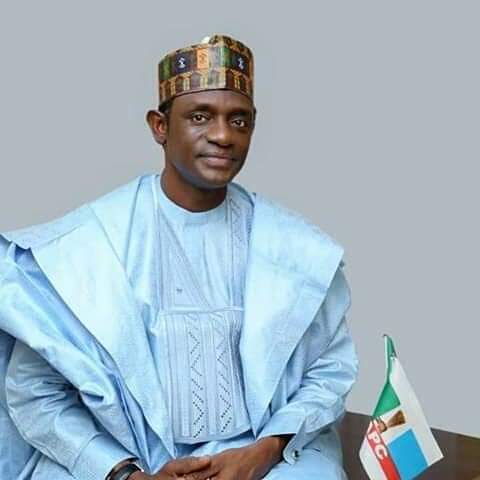The “First Hundred Days” is an American political tradition that the rest of the world has adopted. It is designed to allow both the people in government and the people who are governed to pause for a moment and take stock of the early milestones that newly inaugurated governments have recorded.
The choice of the number of days for this initiatory stocktaking is arbitrary, perhaps even a little hasty, but it can’t be denied that it does help gauge the direction an administration is headed and what citizens can expect going forward.
Governor Mai Mala Buni’s electoral campaign mantra of “continuity and consolidation” was designed to sustain and build on the praiseworthy legacy of his predecessor, Senator Ibrahim Gaidam. He has not only kept this promise, he has also brought a refreshingly innovative strategy to governance: Intelligence-driven group problem-solving techniques. The governor recognizes that old, ever-present challenges can’t be tackled using the same old, tired, ineffective strategies. This recognition has inspired him to seek out the organized input of a broad spectrum of the society before going forward to formulate enduring policy decisions.
For instance, just a few weeks into his administration, the governor declared a state of emergency on basic and secondary education, which constitute the nucleus of learning and growth. A state of emergency is a strategy that suspends the familiar ways of doing things and recognizes the need for unconventional, bold ways to achieve rapid results.
By July 1, 2019, just one month after the emergency declaration, he convened a first-of-its-kind education summit in the state, which assembled education experts, parents, traditional rulers, administrators, educators, and other concerned professionals to brainstorm on the state of education in Yobe and proffer workable, actionable steps for how to clean the rot in the system and provide for quality, functional education.
The summit birthed a working committee, called the Technical Committee to Revitalise Basic and Secondary Education, which was charged with the responsibility of materializing the lofty recommendations of the education summit. Led by former VC of the University of Maiduguri, Professor Malah Daura, the committee worked for several weeks, visited more than 1, 400 schools, talked with relevant stakeholders, and reviewed several years’ worth of data to chart a sustainable and productive course for education in the state.
The committee submitted its report to Governor Buni who promised to study the recommendations and begin immediate implementation. As of the time of writing this, the governor has already studied and approved the report, and instructed for specific courses of action to be taken, including the recruitment of qualified teachers, establishment of Science, Technology, Engineering and Mathematics (STEM) education schools, and an audit of teachers across the state to ascertain their competencies and determine those who need training, re-training or even deployment to other sectors as appropriate. There is justified hope that education in Yobe will witness a dramatic uplift in the coming months and years.
Buoyed by the success of the education summit, the governor plans to hold another “Yobe Agricultural Retreat” from the 16th to 19th of September 2019. The retreat will assemble relevant stakeholders and tap from their views and experiences to re-position agriculture and move it away from its current subsistence level to a commercial enterprise.
What should be obvious by now to any perceptive observer is that Buni has devoted a large chuck of his first 100 days in office to plan, strategize, and solicit broad expert counsel on government policies. Planning and forethought are central to success in governance. That was why Benjamin Franklin once said, “By failing to prepare, you are preparing to fail.” Abraham Lincoln was even more graphic in underscoring the value of planning when he said, “Give me six hours to chop down a tree and I will spend the first four sharpening the axe.”
Nevertheless, Governor Mai Mala Buni has gone beyond sharpening the axe in many areas of governance. He has already chopped down many trees these past 100 days. For example, his acknowledgement of the centrality of agriculture has caused him to order the sale of 360 trailer truckloads of fertilizer to farmers at very affordable rates. In conjunction with the local government councils, the governor has also procured 100 tractors for use by farmers across the state.
In addition, he has struck a partnership with a housing finance firm called Family Homes Funds Ltd to build 3, 600 low-income housing units across all the 17 local governments of the state. The construction of these houses, whose foundation-laying ceremony was performed last Thursday, will create thousands of construction jobs and ease the housing needs of the state’s economically vulnerable populace.
Similarly, in conjunction with the Nigerian Shippers’ Council, Governor Buni is building a Modern Trailer Park in Potiskum, which has the distinction of being home to the highest number of trailer trucks in the whole of the North. The trailer park will be built under the Private Public Partnership (PPP) arrangement. The Yobe State Government has already provided 50 hectares of land in Potiskum. The park will also have a mechanic’s village, hotels, fuel stations, etc. and is projected to create over 5,000 direct jobs. The foundation-stone-laying ceremony for the park was performed last Wednesday.
Governor Buni is also said to be exploring a partnership with the Sukuk Fund to build the very first modern market in Damaturu. When completed, it would be Damaturu’s first modern market in its 28 years as a state capital. Reports say that this will be replicated in Potiskum, Gashu’a, Nguru, Gaidam, and Buni-Yadi Towns.
As the governor taps into his vast network of friends and associates to seek partnerships within the county for the good of Yobe people, he is also already venturing outside the country. For instance, he is collaborating with the Kingdom of Morocco and entities in that country for youth empowerment. Morocco is famous for embroidery, including traditional wears that people use a lot in Northern Nigeria.
When the partnership deal is formalized and sealed, Yobe youth will be trained in arts and crafts to support them to become self-reliant. A delegation from Morocco is expected in Yobe in the middle of September 2019 to push the partnership forward.
In addition to his new infrastructural initiatives, such as the construction of township roads, the governor has continued with all ongoing projects inherited from the former administration of Governor Gaidam, including the cargo airport project, road projects, and the remarkably popular, worker-friendly disposition of ensuring regular and timely payment of salaries, pensions and gratuities to civil servants.
On inauguration on 29th May 2019, Governor Buni identified healthcare, education, agriculture and youth empowerment as the major pillars on which his administration will build its human development efforts. The last 100 days in Yobe have been action-packed and applause-worthy and indicate that the governor has started his first four-year journey on a very sound footing.
Abdullahi is a post-graduate student at Baze University, Abuja

 Join Daily Trust WhatsApp Community For Quick Access To News and Happenings Around You.
Join Daily Trust WhatsApp Community For Quick Access To News and Happenings Around You.


